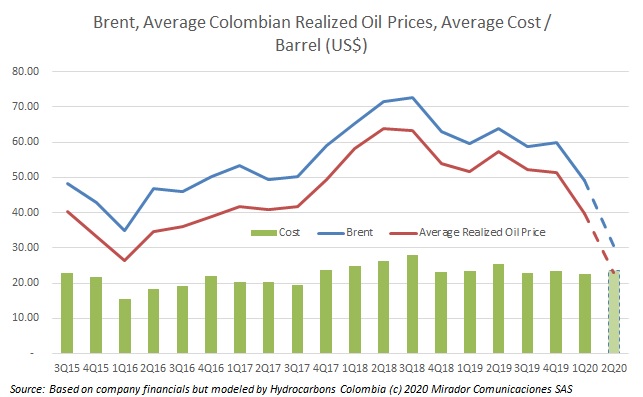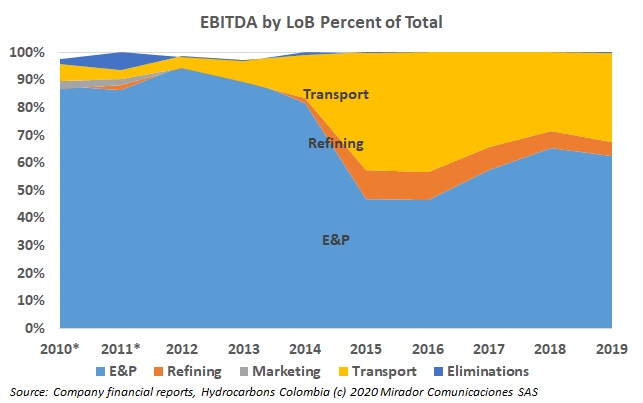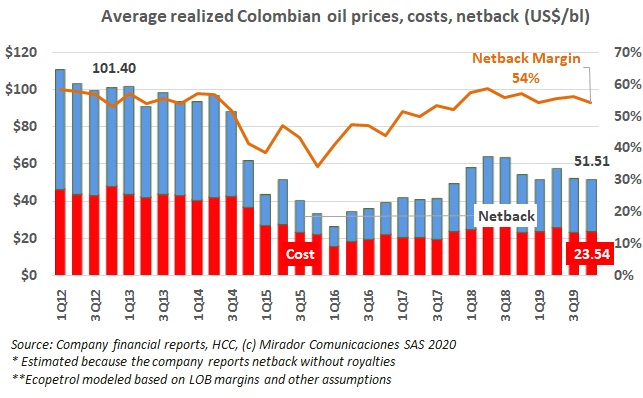
We said we would not be updating our index of shares prices of Colombia-focused companies because, with the departure of Amerisur, there were too few for an average to be meaningful. But that declaration was published on January 20th. Shortly thereafter the wheels came off the oil industry and the world more generally. And so curiosity got the better of us.
Last week Don Germán Montoya passed away at the age of 100, bringing to a close an illustrious career in Colombian business and public life. He had a profound impact on those of us who worked with him and he will be missed. The country will miss his counsel.
Our Long-Time Reader is back as life imitates art. It would be nice to imagine that his article in HCC inspired the Washington Post but that is highly unlikely. The newspaper is not even a subscriber! Instead, as he says in his opening paragraph, his commentary anticipated the Post article and the latter has inspired him to elaborate on his arguments.

Actually, the time to shut-in fields (and at home) came at least a month ago but we thought we would look at trying to estimate what the impact might be on Colombian production.
A long time reader of Hydrocarbons Colombia sees a parallel between the worst case pandemic scenarios (scare tactics?) used by Governments to gain public support and those used by the environmental movement to force behavioral changes in energy usage. .

Last week we discussed pipeline tariffs using figures from Ecopetrol’s Line-of-Business (LoB) results. This week we present our full set of graphs for all of the LoBs.
This week the Colombian Petroleum Association (ACP) raised the issue of oil transport costs and in particular, pipeline tariffs. Given the government’s stake in the Cenit, which owns virtually all of the pipelines, the request for lower tariffs will likely be ignored. But Cenit’s victory may be pyrrhic this time.

We know that it is already the second quarter of 2020 and that companies will soon start publishing their 1Q20 results. But year-end results are always a little bit delayed and we have had other, higher priority things to write about. So here are our 4Q19 Netback graphs.
Frankly, the last time oil prices tumbled, the ANH was less than helpful. There was a grand event where the ANH and the then-minister announced great things! Only to have the agency’s lawyers and the board rip these ‘great things’ to shreds and create regulations that were more onerous and more costly than the ones from which the industry was supposed to have relief. Here Marianna Boza and the team from Brigard Urrutia give us an overview of the latest ‘help’. It does appear to help companies optimize their exploration portfolios but we will leave it to the firms themselves to decide if this is enough to compensate for Brent in the low 30’s.
Some of you may have received an atypical Christmas gift, different from the gourmet baskets or glossy calendars that usually represent “thank you” from suppliers to customers. McKinsey & Company distributed an over 400-page traditional book entitled Reimagining Colombia: Visions of the country we can construct.